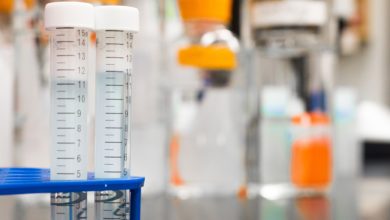What is Covid-19 and how can you test for it at home?

Covid-19 is a novel coronavirus that was first identified in 2019. It is highly contagious and can cause severe respiratory illness. Symptoms include fever, cough, and shortness of breath. Covid-19 is most commonly spread through contact with respiratory secretions, such as saliva or mucus, from an infected person. It can also be spread through contact with contaminated surfaces, such as doorknobs, countertops, or furniture.
There are two main types of at-home Covid-19 tests: antibody tests and nucleic acid tests (NATs). Antibody tests look for proteins that your body produces in response to an infection. NATs look for the genetic material of the virus. NATs are more accurate than antibody tests, but they are also more expensive and require special equipment.
If you think you may have been exposed to the Covid-19 virus, or if you are experiencing symptoms, you should contact your healthcare provider. They will decide if an at-home test is right for you. If you do not have a healthcare provider, you can contact your local health department or a community health center.
What are the benefits of at-home testing?
There are several benefits of at-home testing. First, it is more convenient than going to a healthcare facility. Second, it can help you avoid exposure to the virus if you do not have it. And third, it can help you get treatment sooner if you do have the virus.
How accurate are the tests?
The accuracy of at-home Covid-19 tests varies. Antibody tests are less accurate than NATs. That’s because it can take a week or more for your body to produce antibodies in response to an infection. NATs are more accurate, but they are also more expensive and require special equipment.
From the data collected so far, the accuracy of at-home and assisted living Covid-19 tests is similar to that of tests done in healthcare facilities. However, more research is needed to confirm this.
What supplies do you need to test at home?
If you decide to test at home, you will need a few supplies. First, you will need a specimen collection kit. This kit will have everything you need to collect a sample of your saliva or mucus. Second, you will need a self-addressed envelope to send your sample to the lab. And third, you will need to pay for the test. The cost of at-home Covid-19 tests varies, but it is typically around $100.
How to take a swab sample
To take a swab sample, you will need to insert the swab into your nose and rotate it for 15 seconds. Then, you will need to place the swab in the specimen collection tube. Be sure to label the tube with your name, date of birth, and the date of the swab. Once you have collected your sample, you will need to seal the tube and place it in the self-addressed envelope.
How to take a saliva sample
To take a saliva sample, you will need to spit into the specimen collection tube. Be sure to label the tube with your name, date of birth, and the date of the saliva sample. Once you have collected your sample, you will need to seal the tube and place it in the self-addressed envelope.
At-home Covid-19 testing is a valuable tool for those who are worried about exposure or who are symptomatic and want to find out if they have the virus. The accuracy of at-home tests is similar to that of tests done in healthcare facilities. However, more research is needed to confirm this. From the data collected so far, the accuracy of at-home tests seems to be good.





